SEO
Free SEO Analysis
SEO Services
Content Marketing Services
Local SEO
Link Building Services
Specialized SEO Services
PPC
REPUTATION MANAGEMENT
Free Reputation Management Analysis
Reputation Management Services
Review Management Services
Specialized Reputation Management Services
CEO Reputation Management
Brand Enhancement
Business and Directory Listings
Comprehensive Reputation Management Audit
SOCIAL MEDIA
Free Social Media Analysis
Specialized Social Services
WEB DEVELOPMENT
Free Website Analysis
Web Design Services
Mobile Development Services
Website Maintenance Services
Specialized Development Services
MARKETING AUTOMATION
Free Marketing Automation Analysis
Specialized Marketing Automation Services
Comprehensive Marketing Automation
INDUSTRIES
ABOUT DMA
Content Marketing
How AI and Machine Learning are Changing the Way We Approach Marketing
Request a quote
Its Fast, Easy & Free
Executive Summary
- Artificial intelligence is a machine that can perform what is known as machine learning and use it to solve a variety of complex problems on its own
- AI will empower marketers by opening doors to lucrative market opportunities and better customer relations.
- With a more accurate data prognosis than ever before, AI will finally connect businesses with the impatient audience.
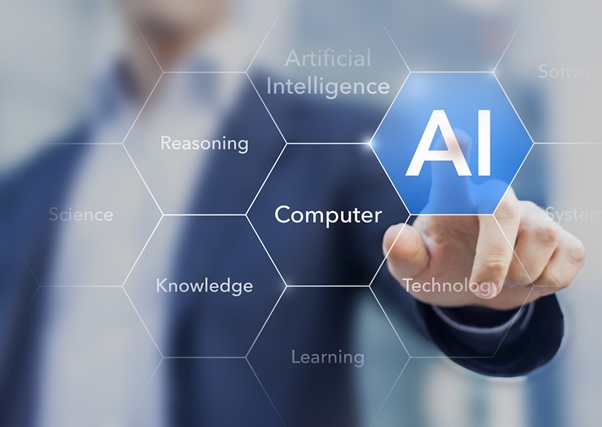
The future is coming and it will revolutionize the marketing industry. Marketers need to prepare for the impact of machine learning (ML) and artificial intelligence (AI) by allowing themselves to become a part of this smart and interconnected digital world.
While there was buzz for quite some time regarding the concept of AI, advanced analytics and the next generation of customer service are finally becoming a reality. According to research projections, by 2020, 85% of customer interaction will not involve a human agent.
But we could say that chatbots have already successfully replaced worldwide customer service representatives, with 34% of consumers in 2017 who preferred this type of customer care. Chatbots are a part of the AI revolution, and they are everywhere.
In fact, many initial interactions between an organization and a consumer are handled via bots. These programs are designed to respond based on the provided keywords, and they do it at lightning speed and at a cheaper rate than human employees. It’s a win-win for thriving corporations and impatient online customers.
However, that’s not the only shift in business practice that’s experiencing major optimization. Digital assistants and other advanced technological solutions that were once only science fiction are taking us a step closer to breaking the limits of marketing.
How? With relevant content, broader marketing reach, new market opportunities, and an overall shift in communication with technology, customers, brands, and services.
What Does AI and Machine Learning Truly Stand For?
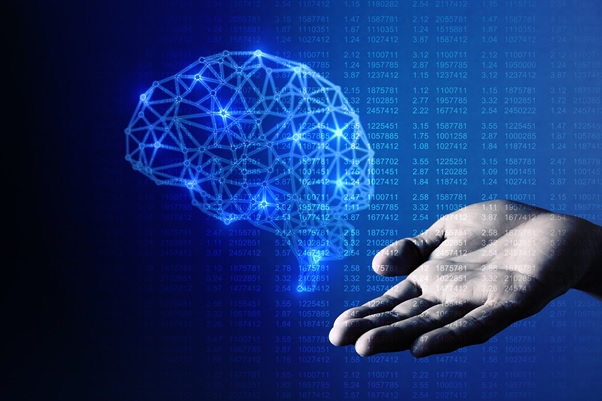
Artificial intelligence and machine learning are two different terms that are often used interchangeably. While AI is a much wider concept of smart machines, machine learning is just one feature of an AI’s capabilities. In other words, artificial intelligence is a machine that can perform what is known as machine learning and use it to solve a variety of complex problems on its own.
In the early stages of development, ML signifies the learning process a machine performs without explicit previous programming. This special ML technique is called deep learning and it involves an artificial network of neurons that mimic the way our brain works. To put it simply, we can give a bunch of data to a machine and watch how it learns by itself.
A neural network system is designed to receive and process information the same way the human brain does. The machine can learn to recognize patterns, make statements, and provide more accurate estimations depending on the data it’s given. But that’s not the end of it.
Another important aspect of AI is the option for human collaboration with the machines. Thanks to natural language processing (NLP), we can enjoy seamless communication and interaction between people and electronic devices, such as the one we share with Siri.
Technology is evolving to the point that devices can now learn how to communicate with us on an organic and natural level. After all, the goal is for computers to achieve human-like understanding of languages and text. And once the objective is completed, they will not only understand, they will also draw their own conclusions, summarize, and naturally communicate.
Reshaping the Marketing Field: What Can Marketers Expect?
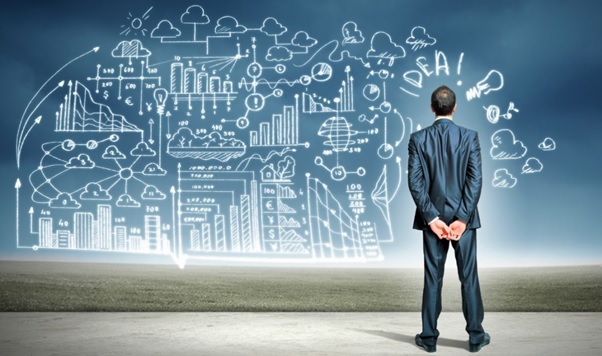
How will AI technology make a difference for marketers? In the years to come, the industry will face a significant shift in personalization and relevance at scale. With increasing customer expectations, businesses will need to implement more innovations that will transform client interactions.
“Meeting customer expectations in the new decade means shifting from being ‘customer focused’ to ‘customer committed.’ This deliberate transformation requires fundamental change in how B-to-B companies think, act, and collaborate.”
When it comes to meeting customers’ expectations, companies will need all the help available. Why? Because by 2020, consumers will become the key brand differentiators. Shoppers’ satisfaction with products and services will drive their loyalty.
AI will empower marketers by opening doors to lucrative market opportunities and better customer relations. From tailored marketing campaigns and interactive website design to far-reaching digital ad platforms, AI promises to increase brand competitiveness by conquering a vast amount of data and expanding marketing strategies to new heights.
Examples of AI and ML Technology in Marketing Today
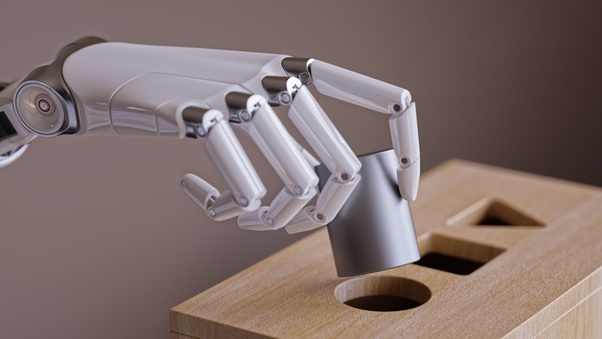
AI in marketing is already behind the scenes of many marketers’ decisions. In fact, research from Marketing Automation Insider suggests marketing automation has grown into a $1.65 billion industry in just the past five years.
In spite of AI’s prevalence, 63% of people still don’t realize that they are using it on a daily basis. However, this doesn’t deter businesses; 68% of CMOs reported that their companies have incorporated, or plan to incorporate, AI into their operations. And 55% of companies expect AI to have a greater impact on marketing and digital communication than social media networks have.
Some brands understand precisely the power and benefits of AI systems. Google, an AI pioneer, used the RankBrain AI algorithm to help find relevance in the enormous sea of search queries back in 2015. This is the perfect example of how NLP (natural language processing) could navigate marketers throughout big data and toward relevant content.
Furthermore, the Grid in website design is also a part of AI technology. It’s often used to automate sites with intelligent image recognition, cropping, and algorithms that make a tailored landscape that evolves over time when you add content to it. Imagine a website that designs itself. Sounds scary and tempting at the same time, right?
AI algorithms can do so much more. They can reach and affect product pricing as well. By using machine learning, marketers can pinpoint the ideal price based on pricing and sales trends, inventory capacity, and other company factors. Even better, AI can provide crucial information to entrepreneurs, such as how and why the customer might come into contact with the company.
This predictive AI technique is widely used by USAA, and it improved their guessing rate from 50% to 88%. The system can analyze thousands of factors and accurately recognize the patterns of human behavior for each consumer. Hence, customer service is enhanced once the AI knows how users will contact the center and for what products.
Let’s not forget that deep insights into customer behavior and preferences lead to personalized ad targeting. The deep learning approach benefits marketing via better data analysis that can show how people reacted to previous and recent digital ads. “Deep learning [is] able to handle more signal for better detection of trends in user behavior.”
Machine learning can also help optimize your product catalog, improve lead conversion, boost branding, and increase the likelihood of a user clicking the ad. AI will bring the customers and marketers closer than ever before, and the audience won’t mind; their efforts are drastically reduced because their actions are anticipated.
The Main Fronts on which AI will Impact Marketing

AI in marketing is developing, and with it, the future of marketing. So let’s review all the branches of marketing AI will transform, considering the fact that each application will have significant implications on both marketers and the customer journey.
Building Social Media Reputation
The most popular strategy for building a positive corporate reputation relies on social media platforms. Facebook, LinkedIn, and Twitter are now common channels for marketers to raise awareness and monetize products and services via ads.
However, those platforms began to research how users perceive ads, which led to AI algorithms fueling news feeds according to consumer preferences. That’s good news for enthusiastic marketers who can use this data to make ads that customers will respond to positively.
AI Content Development & Content Curation
Aside from informing and supporting smart marketing decisions, some AI functions can also generate content for attracting customers to the website. For example, in 2016, the Wordsmith program produced more than 1.5 billion pieces of content, up from 300 million in 2013.
The writing system can efficiently track data and language structure for generating human-like articles. Although the content mostly focuses on data reports, marketers, especially those in finance, can benefit from market reports the AI program provides.
Nevertheless, AI content curation is here to help engage customers more. With this technique, brands can better entertain their visitors by presenting them with content that’s relevant to them.
It’s also an excellent strategy for subscription management, because recommendations gradually become better as the number of users grows. How? Through the use of machine learning algorithms that remember where shoppers left off and analyze the patterns.
Automated Marketing
How can marketing automation assist with sales? AI-powered technology can measure the success and rank sales based on a prospect’s chances of conversion.
Marketers who use machine learning and AI algorithms for sales will have access to customized marketing programs, improved email campaigns, and add a lead scoreboard to the mix. So AI systems will change the current market and marketing efforts in general.
Personalized Web & App Experience
Online shoppers are constantly seeking transparent and innovative businesses, but beyond a clear message and interesting site design, responsiveness is what matters the most. By applying the predictive AI model, customers can get good customer service with quality content on all fronts, including both web and app experience.
Loyal customers will have more in-depth information about products or services they have shown interest in, while new visitors will be engaged with informative content that will retain their interest.
Email AI Marketing
As previously mentioned, AI can help with email marketing optimization. By applying insights generated from AI technology, marketers can discover a subscriber’s tendency to buy certain products and then feature the most relevant products to that consumer. Once they open a newsletter, the email will display potential deals, products, and pricing the company has to offer.
Predictive Analytics
Marketers will finally have accurate insights and predictions to lean on when it comes to productivity. Although the propensity model is only as successful as the data it processes, this type of help could allow organizations to stay ahead of their competitors.
The predictive AI technology will lead the way to new marketing concepts and shape the design of advertising campaigns. Predicting the prices, lead conversions, repeat purchases, trends, and so much more will become the new marketing norm and the main formula for increasing revenue.
Programmatic Advertising
Programmatic marketing can use machine learning and predicting algorithms to effectively target ads to the most important and returning customers. However, not all social platforms are safe for your ads. Ever since Google suffered a safety network scandal due to ads of certain companies appearing on questionable websites, marketers are now a bit careful about posting ads.
But AI can help increase network safety by recognizing the suspicious sites and removing them from the list of channels. In other words, artificial intelligence in programmatic marketing can show marketers the best options for placing their targeted ads.
AI and Machine Learning Trends for 2018
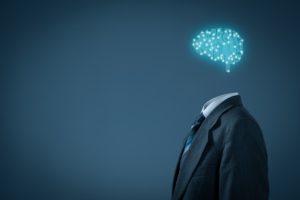
Although the evolution has just begun, we can expect AI results to continually evolve. The next-generation of customer care and marketing will rule the industry while waiting for more marketers to make the jump and join the revolution. AI will take over several applications in the future.
Machine-Human Interactions
Machine learning will not stop with bots. Actually, they can only get smarter and help marketers win over customers by delivering the right content at the right time. As machines can predict the topic of conversation, it will become easier to resolve any complaints or issues users might experience.
Contrary to traditional chatbot conversations and even voice/text communication, AI will allow a new form of collaboration. Microsoft is already exploring the potential of so-called “multi-sensory” communication that incorporates the senses such as sight, touch, sound, and gestures.
Social Media Image Recognition
Visual aids are the most important part of any marketing strategy. Did you know that posts with images are 2.3 times more likely to engage Facebook users? Not to mention that tweets with images receive 150% more retweets than text only. But, it’s not enough to just have any old image — the trick is to find the most compelling photo, which can be a challenge for marketers.
With the help of AI solutions, marketers can find the needle in the haystack and shape their commercial imagery to fit consumers’ preferences. By looking at specific characteristics of the picture, AI tools can detect the form that works on viewers, which can help companies inspire trust in their patrons.
Personalization in Customer Care
Marketing software technology is very popular, and businesses of all sizes use it to get more personal with clients. However, that might not be enough for the future of customer service, as things are about to become more personal.
Instead of push notifications and emails, machines will dig deeper and learn what suits and what doesn’t work for the particular buyer. The entire customer journey with the brand will be tailored to fit every individual as a way to build tighter relationships with the target audience.
Artificial Content
As AI can handle big data, learn from given information, and generate content, it can guide marketers toward better lead tracking and microtargeting. Likewise, AI will also help with content creation, which can reduce costs as well as give brands a competitive advantage.
By understanding and incorporating the human element into the brand’s story, artificial intelligence will seamlessly integrate itself among people. The only difference is the company’s creativity and innovations that can push boundaries.
Conclusion
The focus is now on consumers — customers want innovations and better relations with the corporate world. With a more accurate data prognosis than ever before, AI will finally connect businesses with the impatient audience.
Moreover, AI will automate various marketing technologies and help return relevance to the market. With generated content, in-depth analysis of human behavior and language, and machine learning capabilities, AI will become more than just a tool to support business growth; it will become a part of our culture.
The possibilities are endless, breathtaking, and beyond our imagination. Marketers need to keep watch, as AI technology is being used more widely every day. Regardless, the future is coming fast, and we can expect a lot of changes in the coming years. So if you want your business to keep up and prosper, be prepared for robot communication and automate your marketing as soon as possible.
Our Sales team